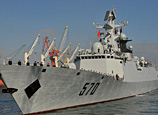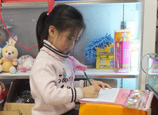
Xing Ligong, an official with Tianjin branch of the State Grid Cooperation, said that improved technology could help implement self-generation and its integration to the grid.
"Except for the assurance of maintenance and stability, domestic technology would be enough to operate self-generation," Xing added.
Many industry experts look forward to the development of clean energy, but only a small group of Chinese people have tried to install distributed generation facilities.
Xiao Han, a researcher in new energy with China Investment Consulting, a leading professional consultive institution in industry research, said that distributed generation makes greater use of clean energy.
"Distributed generation is located much closer to households with flexible integration, and collects energy from many sources including solar power, biomass energy, wind energy source and terrestrial heat," Xiao said.
It also has less environmental impact and stimulates the enthusiasm of new energy developers, compared to large centralized facilities, which depend on the use of fossil fuel, nuclear, large solar power facilities or hydropower plants, Xiao added.
According to the figure provided by Saidi Consulting, a research company under China Center for Information Industry Development, on Taobao, a major online shopping site, sales of solar energy products in March grew 1.6 times than that in February.
Wang Yong, a manager at Saidi, said that the policies of distributed generation as well as integration into the grid is good news for new-energy companies.
However, experts are concerned over the prospect in promoting distributed generation in the short term, as people who are keen on developing self-generation are mainly science lovers.
Industry expert Wang Nengyuan also voiced worries about sustainable development for citizens to generate electricity without a feasible profit model.

















 WWII TV dramas border on the ridiculous
WWII TV dramas border on the ridiculous


![]()
